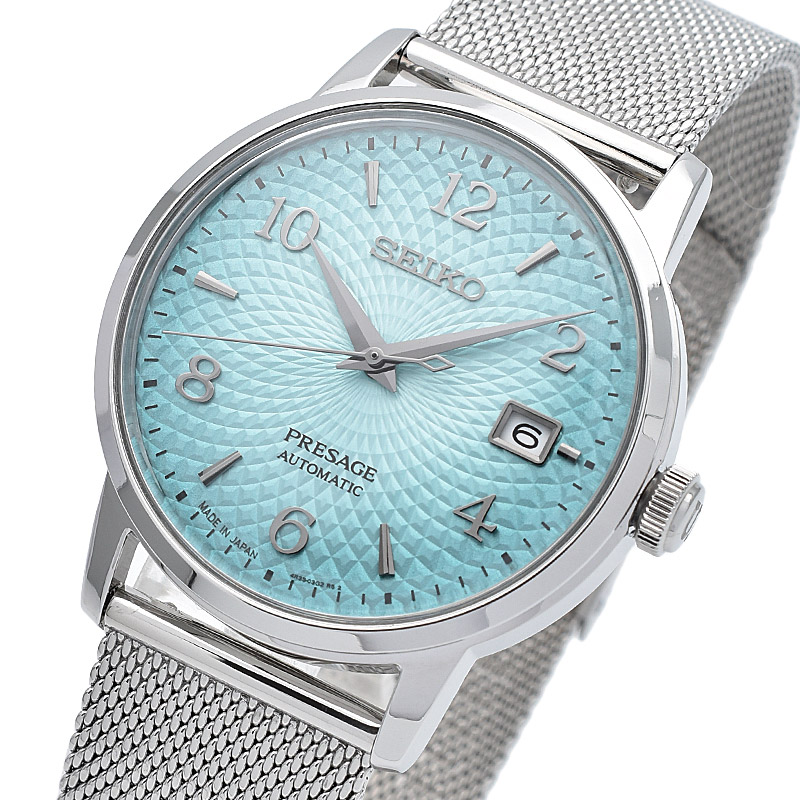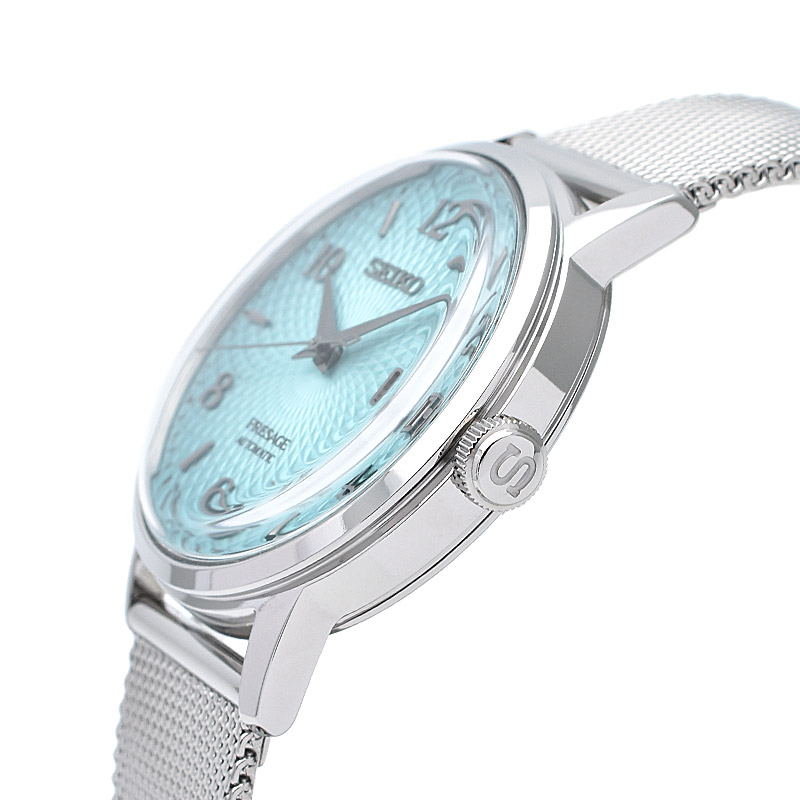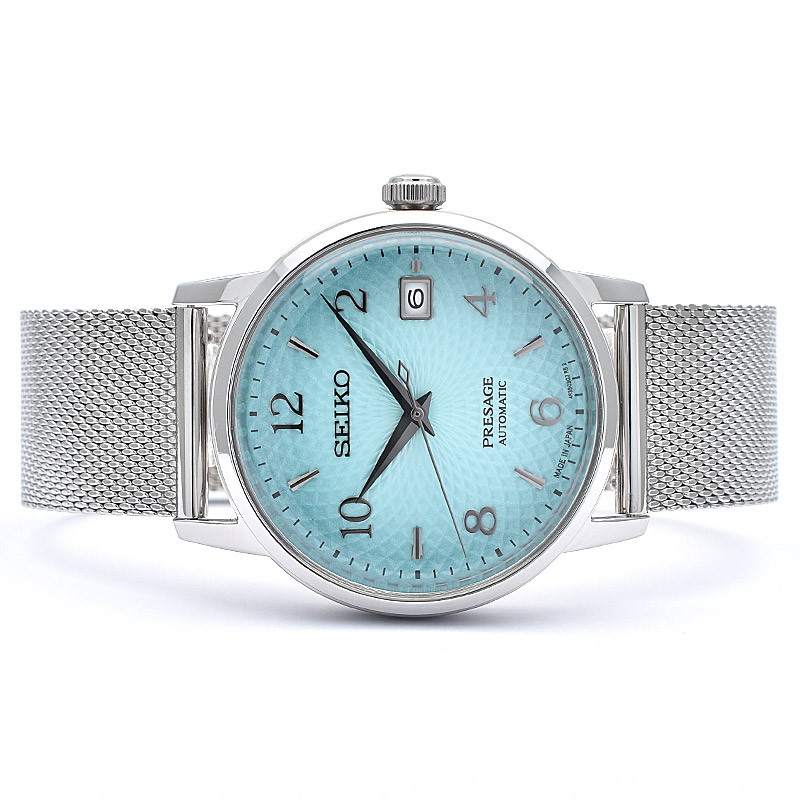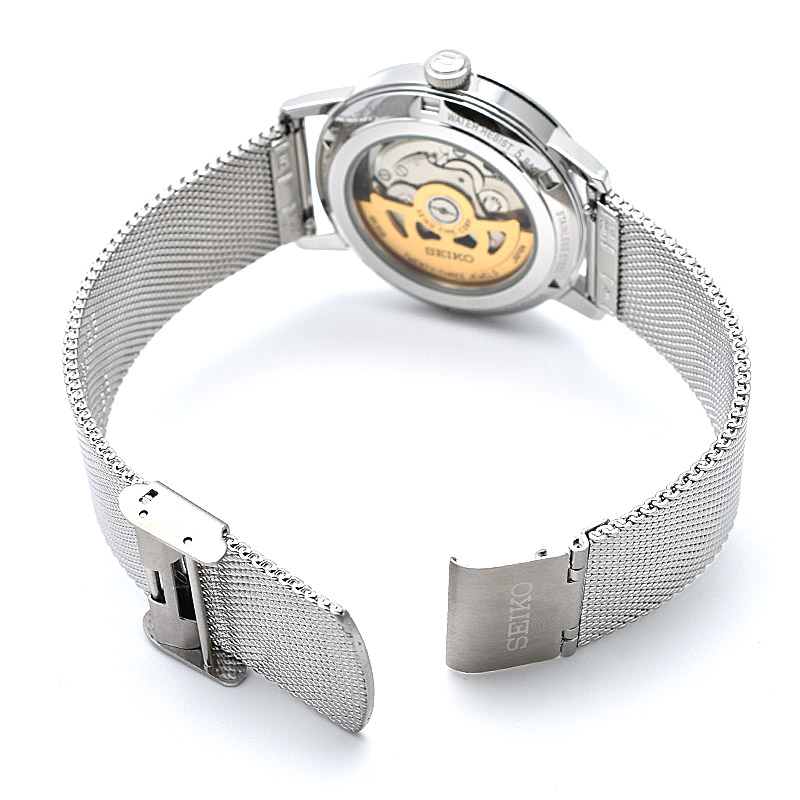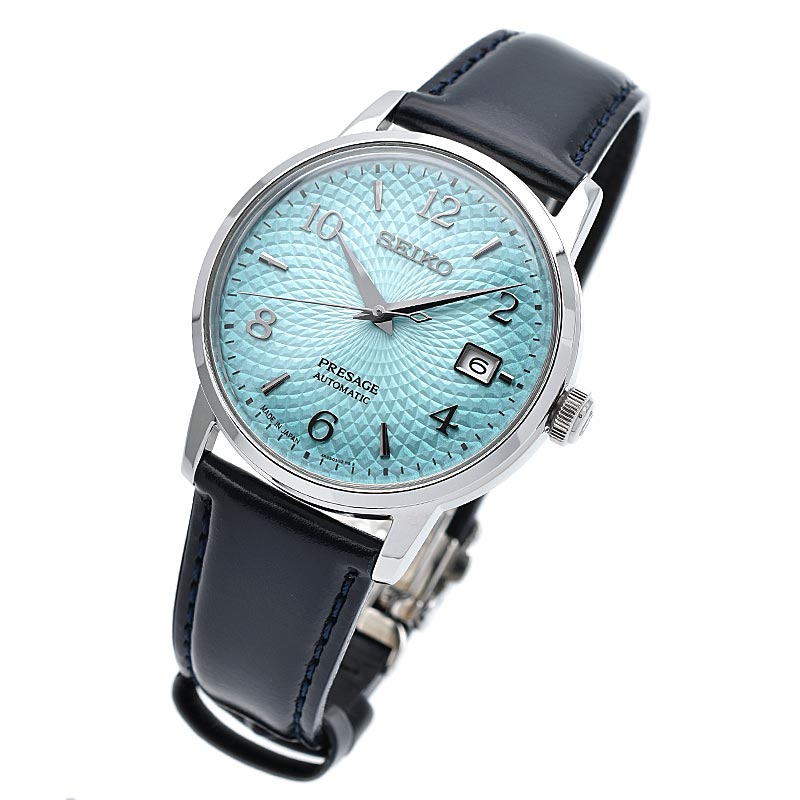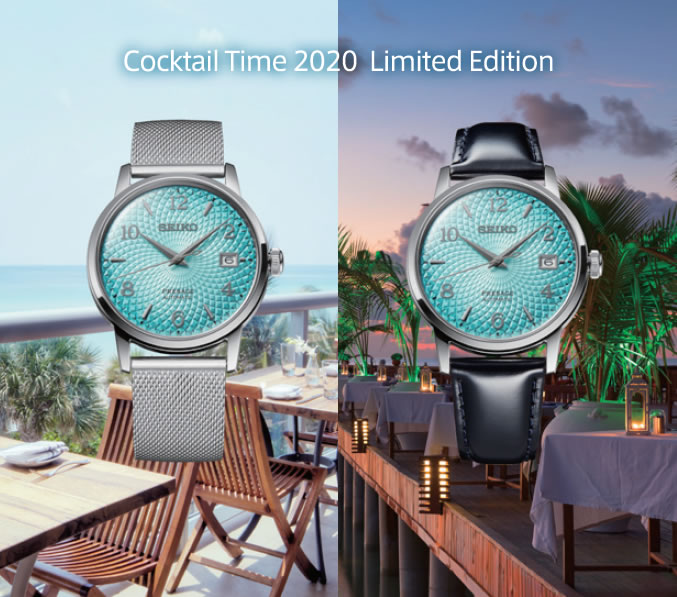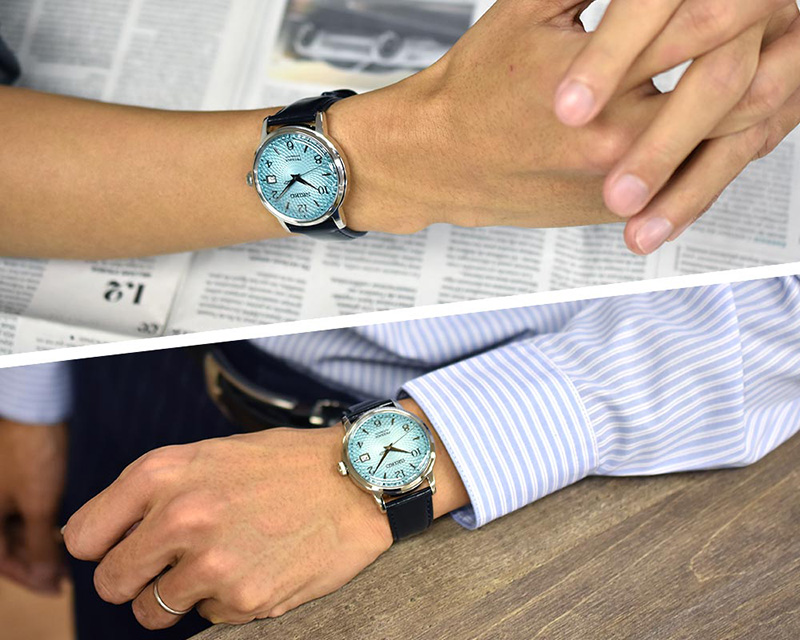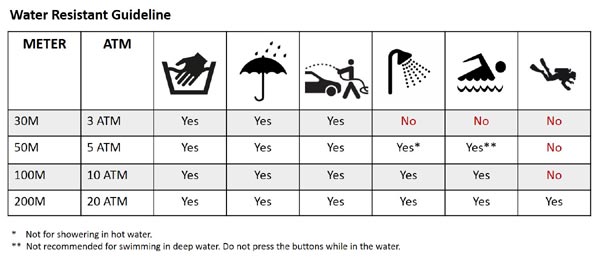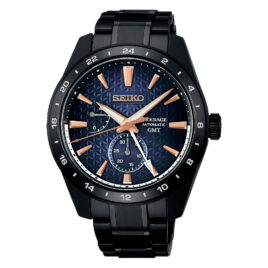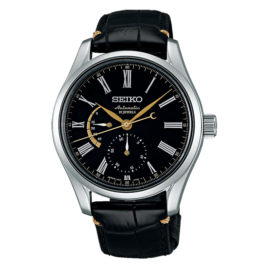Description
SEIKO Presage SRPE49J1 Specifications :
| Feature |
| ||
|---|---|---|---|
| Driving system | Automatic with manual winding capacity | ||
| Caliber Number | 4R35 | ||
| Case material | Stainless steel | ||
| Case back | Screw see-through case back | ||
| Case color | Silver tone | ||
| Glass material | Box-shaped hardlex crystal | ||
| Band type | Bracelet and additional strap | ||
| Band material | Stainless steel mesh and calfskin leather | ||
| Band color | Silver tone bracelet and dark blue strap with blue stitching | ||
| Band width | 20 mm | ||
| Clasp | Slide | ||
| Dial color | Aqua | ||
| Dial markers | Silver tone batons with arabic numerals at 2, 4, 6, 8, 10 and 12 o’clock | ||
| Second markers | Silver tone minutes markers around the outer rim | ||
| Hands color | Silver tone (hour, minute, second) | ||
| Bezel | Fixed silver tone stainless steel | ||
| Crown | Pull out | ||
| Calendar | Date display at the 3 o’clock position | ||
| Function | Date, hour, minute, second, stop second hand | ||
| Drive duration | Power reserve: 41 hours | ||
| Accuracy | +45 to -35 seconds per day | ||
| Water resistance | 5 bar water resistance (50 meters / 165 feet) | ||
| Size | Height : 45.4 mm x Width : 38.5 mm x Diameter : 11.8 mm | ||
| The perimeter of bracelet | 205 mm | ||
| Weight | 90 g |
SEIKO Presage SRPE49J1 Features :
- An additional calf strap is included
- LIMITED EDITION on the case back
- Screw case back
- See-through case back
- Serial number engraved on the case back
- 23 jewels
- Date display
- Stop second hand function
SEIKO Presage SRPE49J1 History :
Presage. The product of a century and more of experience
In 1913, Seiko made its first mechanical watch. 1956, Seiko made its first automatic watch. 1958 Seiko created its shock resistant system, Diashock, to preserve precision when the movement is subject to impact. 1959, Seiko invented the Magic Lever spring winding mechanism, and in 1964, it started producing balance springs in-house, utilizing its own specially developed alloy, Spron. 1967, Seiko created Japan’s first hi-beat caliber. 1969, Seiko made the world’s first automatic chronograph with vertical clutch and column wheel systems and in 2014 Seiko’s mechanical watchmaking skills were rewarded with a prize at the Grand Prix d’Horlogerie de Genève for its hi-beat caliber.
For over a century, Seiko has developed and refined its mechanical watchmaking skills. Today, all this experience comes together in a new, all-mechanical, collection named Presage. Presage has already been successful in Japan and selected other markets for some time. Now Presage goes global and takes center stage as Seiko’s leading mechanical watch collection.
Presage: A wide range of calibers, designs and tastes
Presage is a collection of broad appeal. It comprises 60 models and uses the full range of Seiko’s mechanical calibers, from the accessible 4R, through 6R to the exclusive 8R. Highlights include the 6R27 multi-hand power reserve model and a series using an entirely new version of the 4R57 caliber. This new caliber is Seiko’s first ever with a center power reserve indicator, and is available in a series of five designs, including a limited edition. Every Presage watch has 10 bar water resistance and a sapphire crystal.
Japan is a land with a long and unbroken cultural history and therefore values tradition very highly. Long-lasting beauty and long-lasting performance express the deep desires of Japanese culture and are therefore at the heart of Japanese craftsmanship. Both in design and manufacturing values, Presage belongs firmly in this tradition and offers the very highest levels of reliability and durability over time. Each Presage watch is built to last for generations.
SEIKO Presage SRPE49J1 Story :

Cocktail Culture
Giving Cocktails a Japanese Twist
The first Western-style bar opened in Japan in the mid-nineteenth century, but it wasn’t until the 1870s that actual cocktails were regularly served. Although such establishments catered to foreigners, the help was Japanese, and these young men eagerly absorbed the techniques and traditions of Western bartending. Later, many opened their own bars, primarily in the Ginza area. Over time, a cocktail culture emerged.



